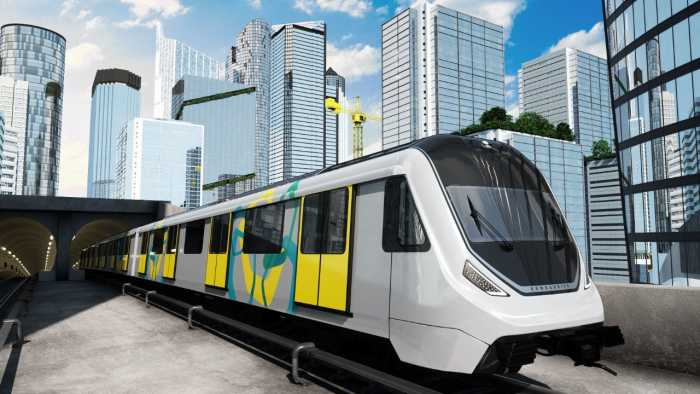
The agreement to this effect was signed in the virtual presence of Ambassador of the European Union to India Ugo Astuto, Vice President of EIB Andrew McDowell, CS Mohapatra, Additional Secretary, Department of Economic Affairs, Ministry of Finance (GOI), and Managing Director UP Metro Rail Corporation Limited Kumar Keshav along with Director Finance UPMRC and other delegates from EIB, Ministry of Finance and European Union.
The project aims at enabling some 3 million people in the city to benefit from green, safe, fast, and affordable public transport. The new metro rail system will reduce commuting hours and unlock new employment and education opportunities in this industrial capital of Uttar Pradesh. This is the second metro rail project supported by the EIB in Uttar Pradesh. EIB Has also supported the Lucknow Metro rail system with €450 million investment.
With the Kanpur investment, the total amount of the EIB’s approved support for metro rail systems in India has reached €2.65 billion, more than half of the entire EIB investment portfolio in India. This is the fifth EIB investment in green infrastructure and connectivity in India and the second in the state of Uttar Pradesh. Other than two metro rail projects in the state, the EIB has invested in metro rail systems in Bhopal, Pune, and Bangalore in India.
Kanpur Metro is the biggest investment made by the Bank outside the EU. Announcing the investment, Vice-President of the European Investment Bank, Andrew McDowell said, “The metro will have a positive impact on the quality of life and doing business in the city through access to affordable transport, creating new employment and education opportunities. It will be a safe, green, and affordable transport alternative for Kanpur and its visitors. We are also glad to see this project is contributing to global climate action while strengthening EU-India relations.”
The EIB will finance the construction of a 32.4 km urban rail line, with 18 elevated and 12 underground stations. Once completed, Kanpur metro rail will create 1100 new jobs and enable around 116 million more affordable commutes each year.
At the last India-EU summit on 15 July, leaders of both sides had discussed how to put climate action and the green transition at the heart of economic recovery post COVID. Referring to the summit, the EU Ambassador to India Ugo Astuto said, “Sustainable mobility is a key component of this strategy, towards modern, clean and healthy economies. The Kanpur project is an important investment in making public transport efficient, safe, and sustainable.”
The EIB investment will accelerate the social and economic recovery of the city in the aftermath of the COVID-19 pandemic and support the long-term re-emergence of the local economy. The investment also bolsters the Government of India and its Urban Development “Smart Cities Mission”, as Kanpur is one of the first 100 targeted Smart Cities in the country.
“Fulfilling the trust shown by the EIB in funding the Kanpur metro project will be our highest priority in delivering this prestigious project on time, said Uttar Pradesh Metro Rail Corporation’s Managing Director, Kumar Keshav. “Comfortable, fast, safe, energy-efficient and affordable public transport systems like metros are needed for cities to become the engines of growth in our country.” Said Keshav Kumar
The Kanpur metro rail project will help India achieve a number of UN Sustainable Development Goals including climate action, sustainable cities, and gender equality. In addition to creating an affordable and accessible public transport, the new metro will reduce pollution and greenhouse gas emissions and improve air quality across the city. With easier access to the local job market, healthcare, and education for residents, Kanpur metro rail will have a positive impact on the quality of life and doing business, and increase safety for female travelers.
– Abhishek Jha

